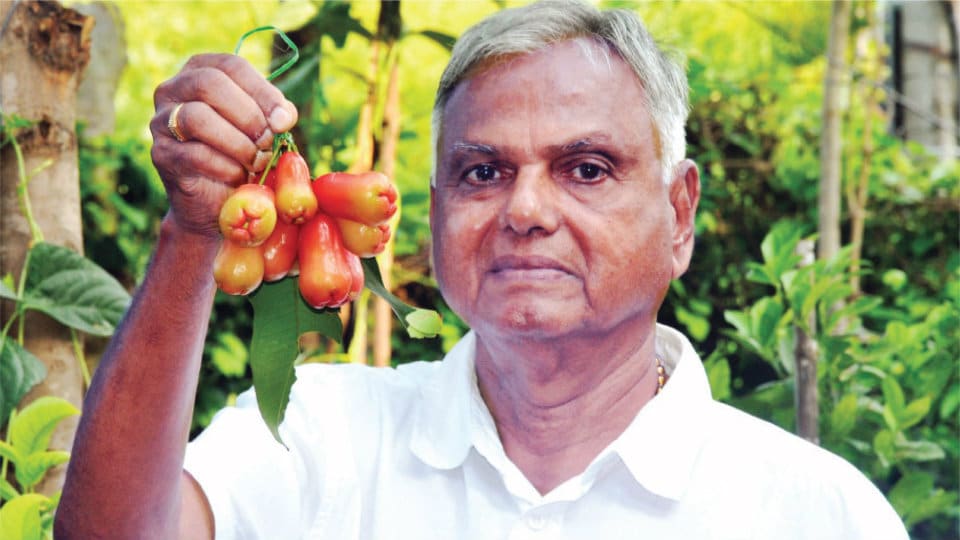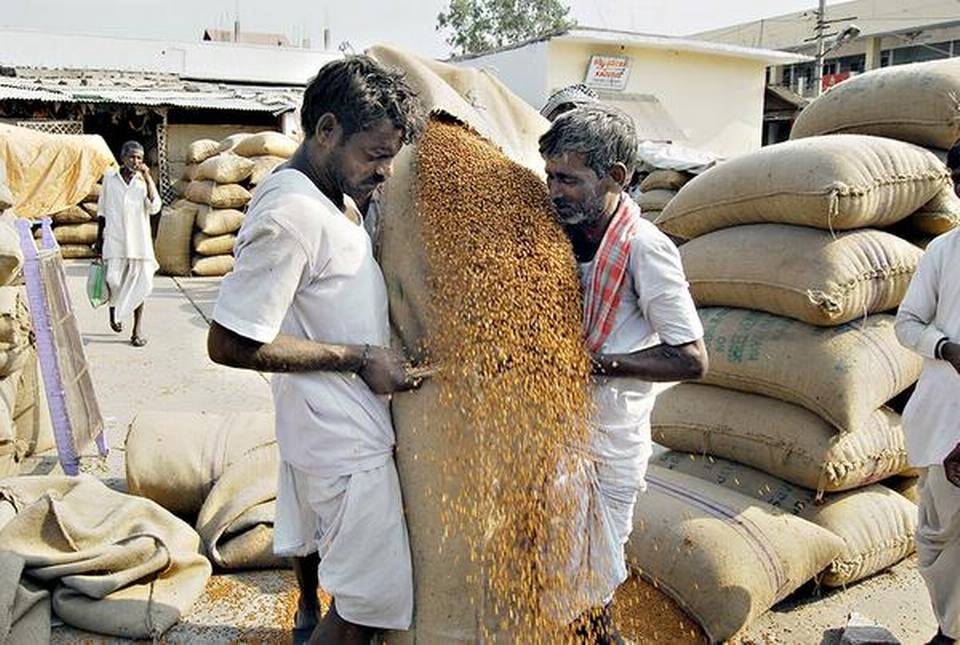Mysuru:
Dr. C.N. Mruthyunjayappa (75), fondly known as Sargur Doctor, passed away at his residence #72, ‘Santrupti,’ Shantala Marga, Srirampura, here yesterday afternoon following a cardiac arrest.
He leaves behind his wife Sudha, sons Rajendra, Shailendra and Sharashchandra and a host of relatives and friends.
The body was kept for public viewing at his Sargur residence today from 6 am to 9 am. Last rites were performed at Chikkebagilu village in Malavalli taluk at 3 pm today.
It may be recalled that Star of Mysore had published a ‘Weekend Star Supplement’ titled “Santrupti – A garden with a difference” on June 4, 2017.
Profile: Dr. C.N. Mruthyunjayappa was a doctor (MBBS) by profession with a Bachelor’s degree in B.Sc (Botany). He started the clinic in Sargur, the most backward area in H.D. Kote taluk and served the people for more than 35 years and later shifted to Mysuru. He also served as a Medical Superintendent of JSS Hospital, Mysuru.
An environmentalist, plant grafting expert and philanthropist, during his medical career at Sargur, he treated poor patients free of cost. He was a Trustee / Member of many social service organisations. In Sargur he started ‘Vanasiri’ Trust (Founder-President) devoted for afforestation and wildlife protection and was responsible for creating tree belts around Sargur. After shifting to Mysuru (Srirampura), he was responsible for planting many trees in the locality. He received Vaidyarathna Award (2011) for his outstanding services as a medical doctor. His hobby was gardening and travelling abroad.
Recognising his contribution in conservation and sharing of Germplasm (fruits and other crops), Government of India (Ministry of Plant Varieties and Farmer’s Rights Authority, New Delhi), had awarded “Plant Genome Saviours Farmer Reward 2015” to Dr. Mruthyunjayappa. He was the second recipient of the Reward from Karnataka since it was instituted in 2012.
The couple have developed a unique type of garden at ‘Santrupti’ in Srirampura in an area of 120’ x 80’ plot of land, which encompasses matchless combination of ornamental, vegetable and fruit-bearing plants.
The philanthropist couple donated the entire prize money (Genome Saviour Reward, 2015) to a poor farmer (Rs. 1 lakh) and a social organisation (Rs. 0.5 lakh) last year.
source: http://www.starofmysore.com / Star of Mysore / Home> News / April 12th, 2018









